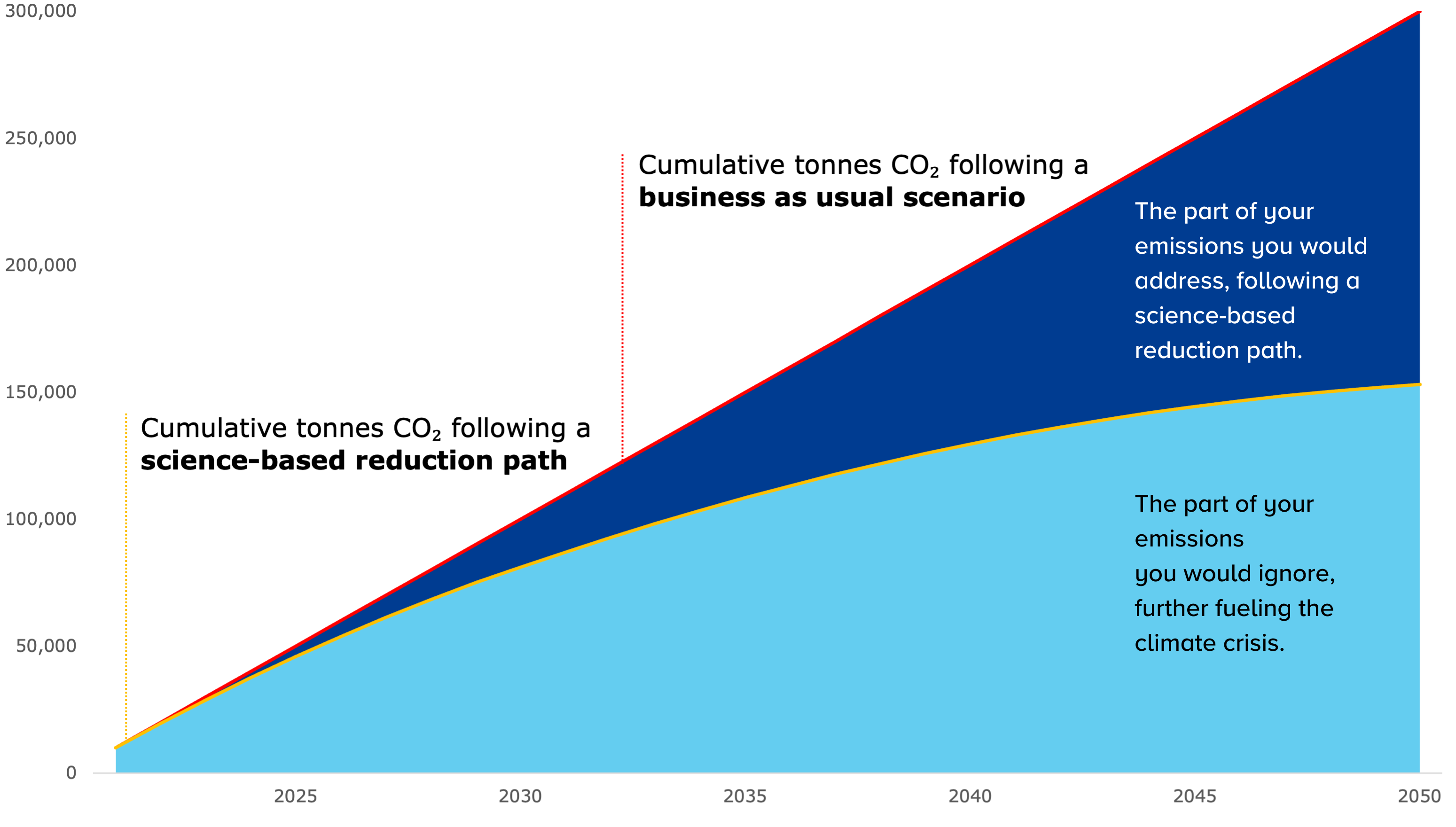The other half of emissions no one is talking about

This content is currently only available in English.
While it is common sense that reducing emissions is vital and many companies are committing to net zero, your climate action strategy might be falling short.
Following recognised frameworks like the Science Based Targets initiative, businesses focus on cutting emissions in their value chain while neutralising unabated emissions.
However, there is a critical aspect often overlooked: emissions accumulate over time while being reduced on your path to net zero.
This is the other half of emissions no one is talking about, and addressing it is essential. A comprehensive strategy not only focuses on reducing current emissions but also takes responsibility for the impact along the way.
[unsichtbarer anchor]
Why does it matter?
Despite the number of target commitments and pledges, both government and corporate net zero strategies are not doing enough to keep decarbonisation progress in line with the 1.5 degree target of the Paris Agreement.
This means that the climate action measures you are implementing today may not have the desired impact or deliver the results the planet urgently requires. Success should not be measured by action, but by impact.

By the time you reach net zero, you will have emitted 15 times your current carbon footprint. Taking responsibility for the emissions you’re still releasing is the other half of the job.
How to tackle the other half
Financial contributions to climate projects outside of your company’s value chain help tackle the other half of emissions. These projects avoid, reduce, and remove carbon from the atmosphere. In addition to emission reductions, these projects support the lives of local communities most affected by climate disasters.
We cannot afford to focus only on reductions or only on climate project contributions; to have a credible journey to net zero, we have to do both. Make sure that you get the whole job done.
ClimatePartner helps you get the whole job done
ClimatePartner, together with its project-focused subsidiary ClimatePartner Impact, develops and supports climate projects worldwide. You will have access to a portfolio of more than 400 carefully selected and high-quality climate projects.
In over 15 years of working with project developers, we have implemented stringent due diligence processes. We only include projects in our portfolio that are verified by international standards, validated by independent third parties, and meet additional quality requirements.
Get the whole job done. Are you ready?
[unsichtbarer anchor]